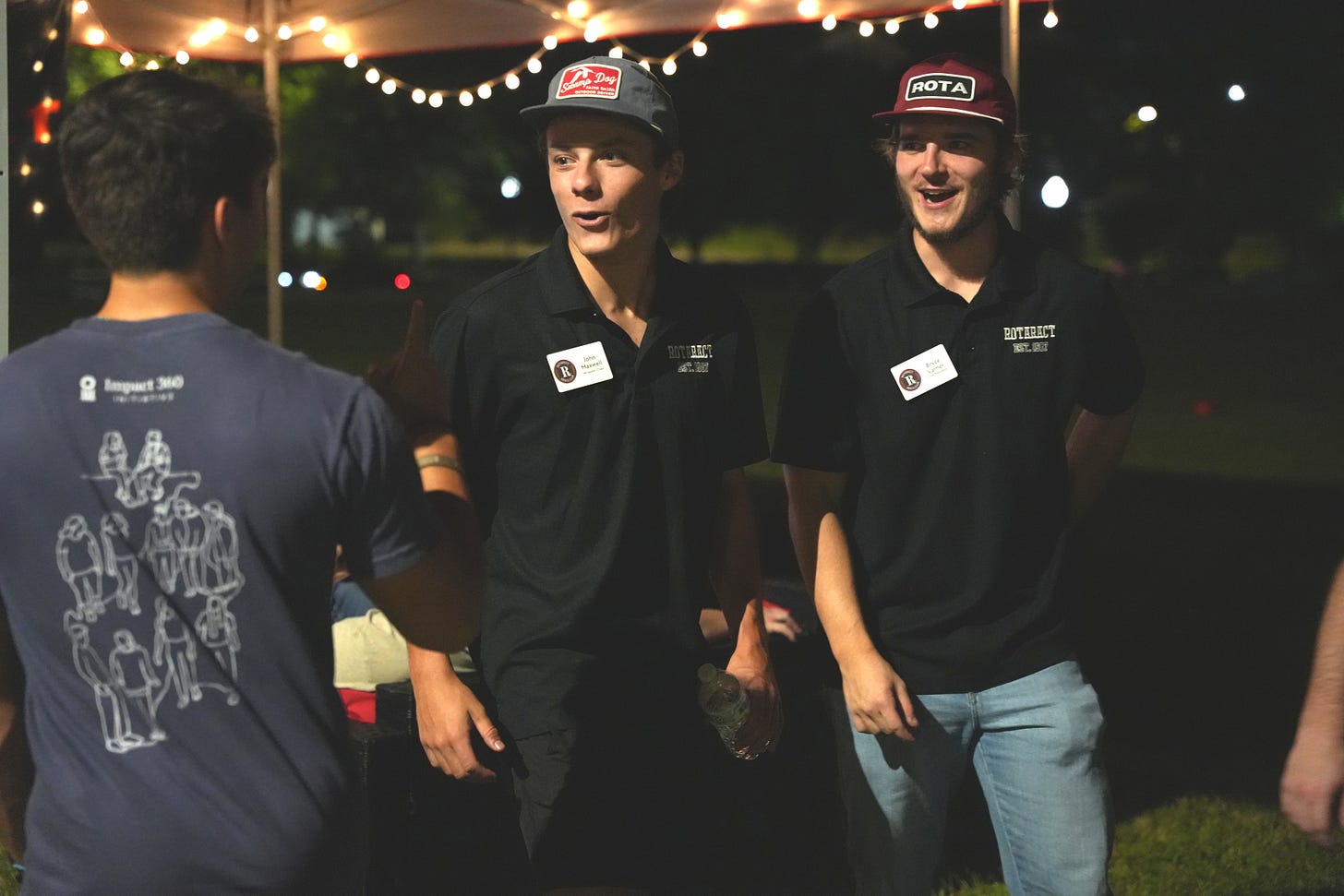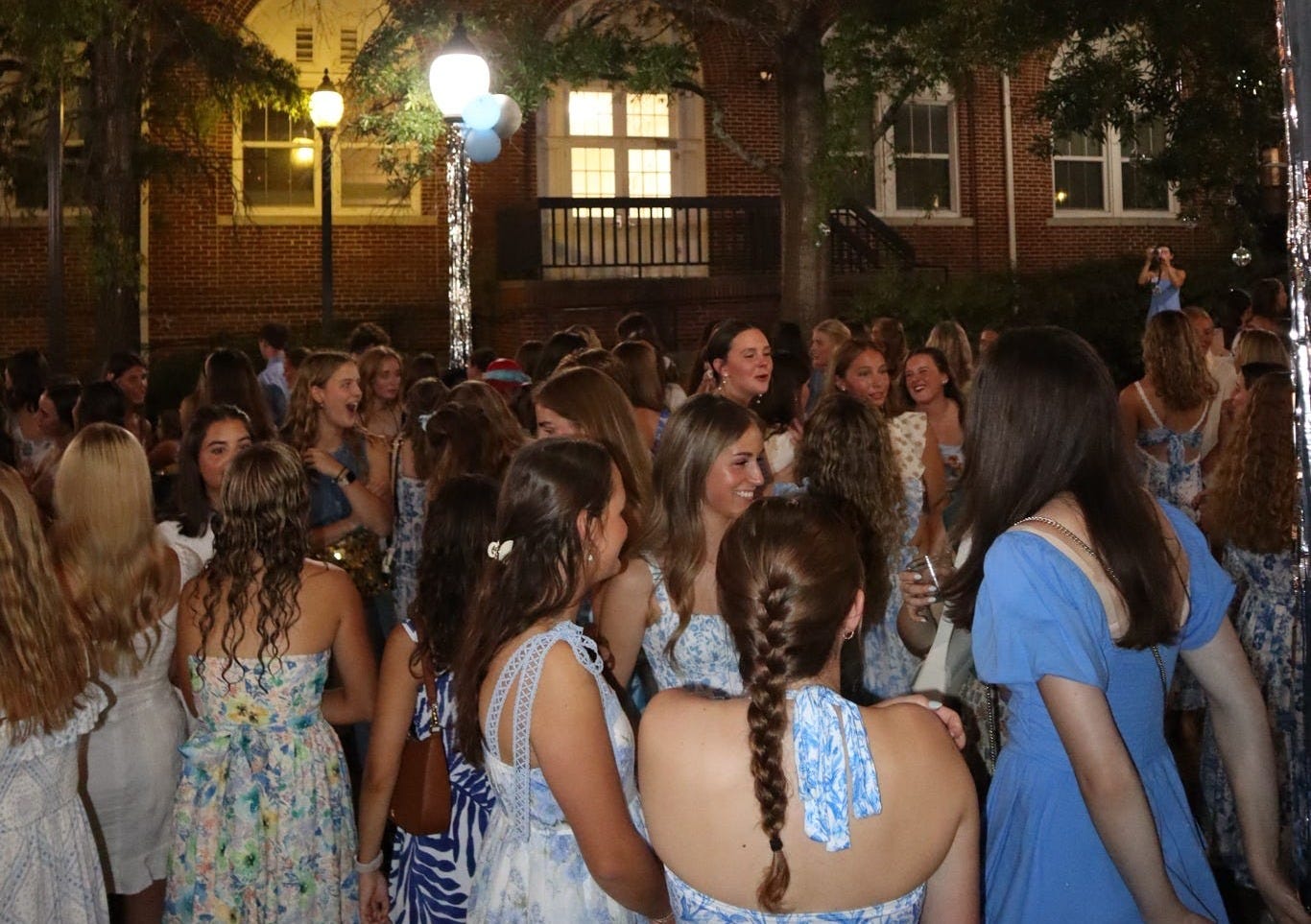Recruitment Realities
Students examine the costs and benefits of joining on-campus social organizations.
Each fall semester, students at Mississippi College participate in a several-week-long recruitment process to join social organizations. During this period, women’s social tribes and men’s service clubs are presented to students through a series of events and parties. Most refer to the process simply as “recruitment.” For many new students, the recruitment process is a way to make friends and get involved on campus, but not all students participate.
While Greek life is a staple in modern American university culture, MC’s decision to opt out of fraternities and sororities leaves a unique opportunity for social engagement. Men on campus have the opportunity to join one of five clubs: Civitan, Kokoa, Rotaract, Shawreth and Decerto. Women on campus have a choice between five organizations called tribes: Chenoa, Kissimee, Laguna, Nenamoosha and Swannanoa

While most of these organizations are original to Mississippi College, Civitan and Rotaract are individual chapters of worldwide organizations. Civitan International and Rotary International have existed for over 100 years. At MC, Civitan, Kissimee and Laguna have had the longest legacies; the club first started in 1949, and the two tribes in 1952.
Today, the ten organizations compete in their efforts to recruit new members. To join, students pay a fee and begin the recruitment process at the start of a fall semester. Those who participate are referred to as potential new members (PNM). In recent years, Mississippi College has moved away from the more common term — “pledge”–under updated hazing policies.
In 2025, recruitment began with a Sept. 4 block party and concluded on Sept. 18 with last chance parties. While the final events were optional for recruits, potential new members were required to visit with each club or tribe at least twice. Most of these events were scheduled later in the evening, in an effort to allow as many students the chance to participate.
Participation in the recruitment process tends to fluctuate from year to year, and more women generally participate than men. This reflects the university’s majority-female population. Recruitment in 2025 saw a lower turnout than in recent years, which also reflects a slight decline in overall student enrollment. Jadi Foster, MC’s director of student engagement, said this semester, 95 men and 245 women completed the recruitment process and joined an organization.
While the process is open to all student classifications, the majority of PNMs are naturally freshmen. Some freshmen stated that they were drawn to the opportunity for connection and community. “I wanted to make friendships I wouldn’t have otherwise made and to potentially find mentors,” Zoey Corales, now a member of Laguna Social Tribe, said. “I want to have a community of like-minded individuals,” Anna Morgan, another freshman, said.
Many students who can participate do so, looking for ways to serve the community. With the new addition of “philanthropy parties” to this year’s recruitment festivities, freshmen are made more aware of each organization’s distinct way of serving. “I want to have an opportunity to serve, and being a member of a tribe seems like an accessible way to do that,” Anna Harrington, a member of Swannanoa Social Tribe, said. “It’s been fun, and it’s [recruitment events] late enough to where it doesn’t interfere with other parts of my life,” Harrington said.
While clubs and tribes are largely governed internally, a student group known as The Council acts as an official governing body between the organizations. The Council is composed of representatives of each organization and is responsible for recruitment logistics.
Council President Anne Bigley said students who join organizations are primarily interested in getting to know more people. Bigley also commented on the major downside, and to some, a complete turnoff for recruitment participation—time commitment. “I had to be very strict, especially during recruitment and the [rush] process to make sure I was prioritizing my school so that come the evening when I had an event, I was able to go and be fully invested,” she said.
Bigley, a nursing major, is not the only student who considers time a major factor in their decision to participate or opt out. Josiah Dwyer, a freshman biochemistry major, quickly saw that recruitment was not going to work for him. “From week one, my schedule kind of got immediately pretty packed, and I just didn’t see time to fully invest in it,” Dywer said.
Anne Bigley recalled her freshman-year recruitment experience and acknowledged another deterrent to participation—expenses. “I know for me, money was pretty tight my freshman year, so I was basically paying dues, and then I was opting out of everything else like tickets and shirts and stuff,” the council president said. “We, the council, try to keep the fees fairly low, but I know it is an issue for a lot of people.”
To some, a decision against recruitment stems from a mix of time and expenses. Amber Baugh, a transfer student, explained that her situation would not allow her the opportunity to go through the recruitment process. “I’d heard about it, but it became a lot more clear to me that it was something I wasn’t ever gonna be able to do because I’m so busy with school and work and balancing my personal life,” Baugh said. “I’m having to work to afford to continue to go to MC, so I can’t cut my work hours back at all if I want to continue to go to school.”
Clubs and Tribes continue to be the largest organized social opportunity at Mississippi College. Upon the conclusion of recruitment and a mutual selection process, PNMs are welcomed into their organizations through a month-long rush process.






